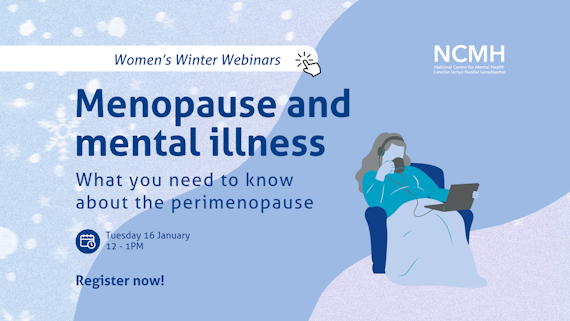Women's Winter Webinars: Menopause and mental illness
This event has ended.
Contact
Add to calendar

We’re pleased to be offering a webinar series discussing how reproductive events such as pregnancy, the menstrual cycle and reproductive ageing impact the mental health of women and people assigned female at birth (AFAB).
Each webinar will feature our researchers discussing their latest work in each area and people with lived experience sharing their personal stories of these conditions.
We’re running these sessions to raise awareness of the conditions and they are open to the general public, not just health professionals and people with an interest in mental health research.
How the menopause impacts mental health
It is estimated that around 70% of the 1.2 billion women over the age of 45 in the world develop neurological and psychiatric symptoms during the perimenopause (the years before the final menstrual period).
Research also suggests that perimenopausal women are at a higher risk of developing major depression, schizophrenia, or bipolar disorder, whilst women who already have a diagnosis will experience a worsening of symptoms.
However, there is little and often inconsistent information available on the link between the perimenopause and mental health, and what might predispose someone* to become unwell during this transition to the menopause which poses a major risk to women, their families, and health professionals.
This webinar will provide a solid basis of understanding on the perimenopause from Psychiatrist and Cardiff University Professor Arianna Di Florio whilst introducing clinical concepts to help navigate the field of menopause research and care.
About NCMH
The National Centre for Mental Health (NCMH) brings together world-leading researchers from Cardiff, Swansea and Bangor Universities to learn more about the triggers and causes of mental health problems.
We aim to help improve diagnosis, treatment and support for the millions of people affected by mental ill-health every year, as well as reduce the stigma faced by many. Key to achieving these aims is to engage with services and their users, the third sector and the wider public to increase understanding of mental illness, and by supporting and undertaking mental health research.